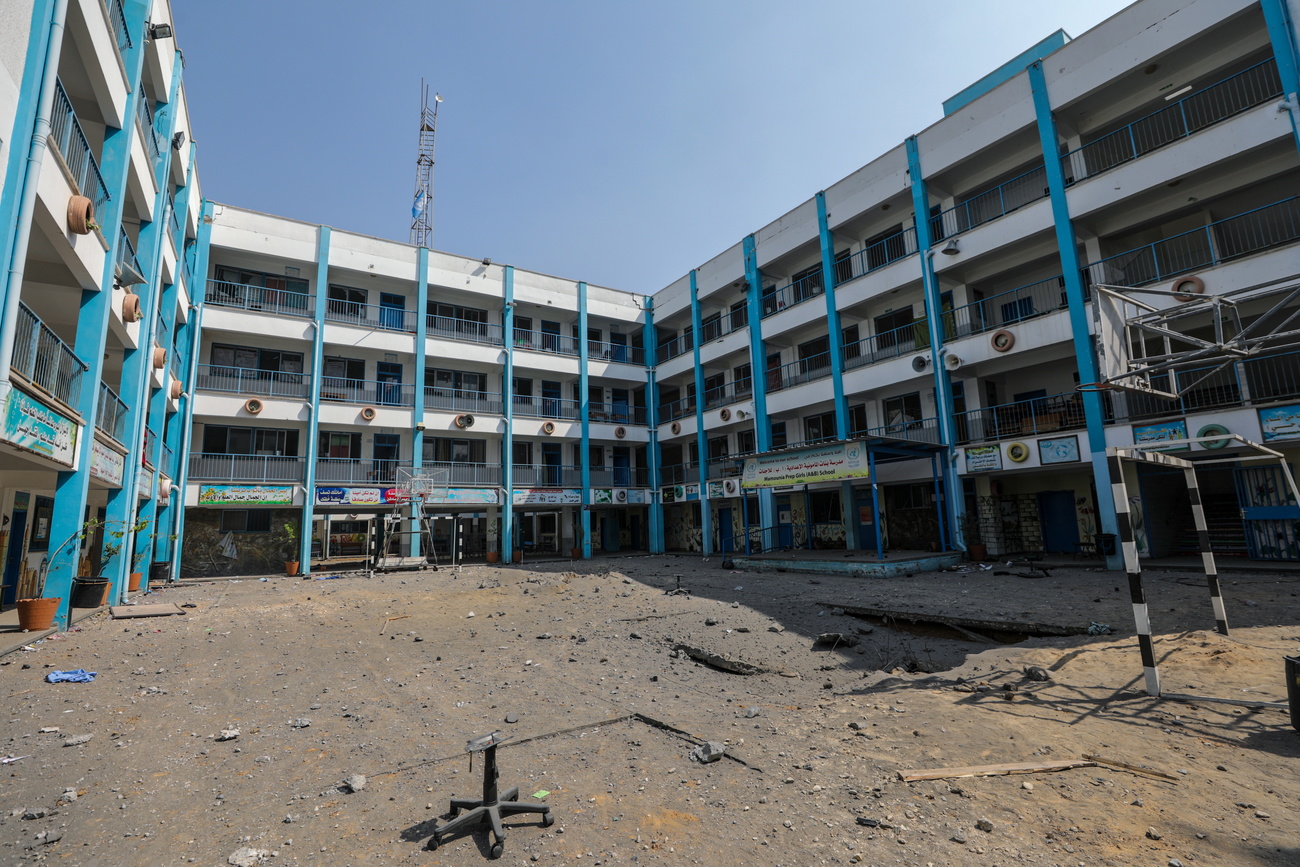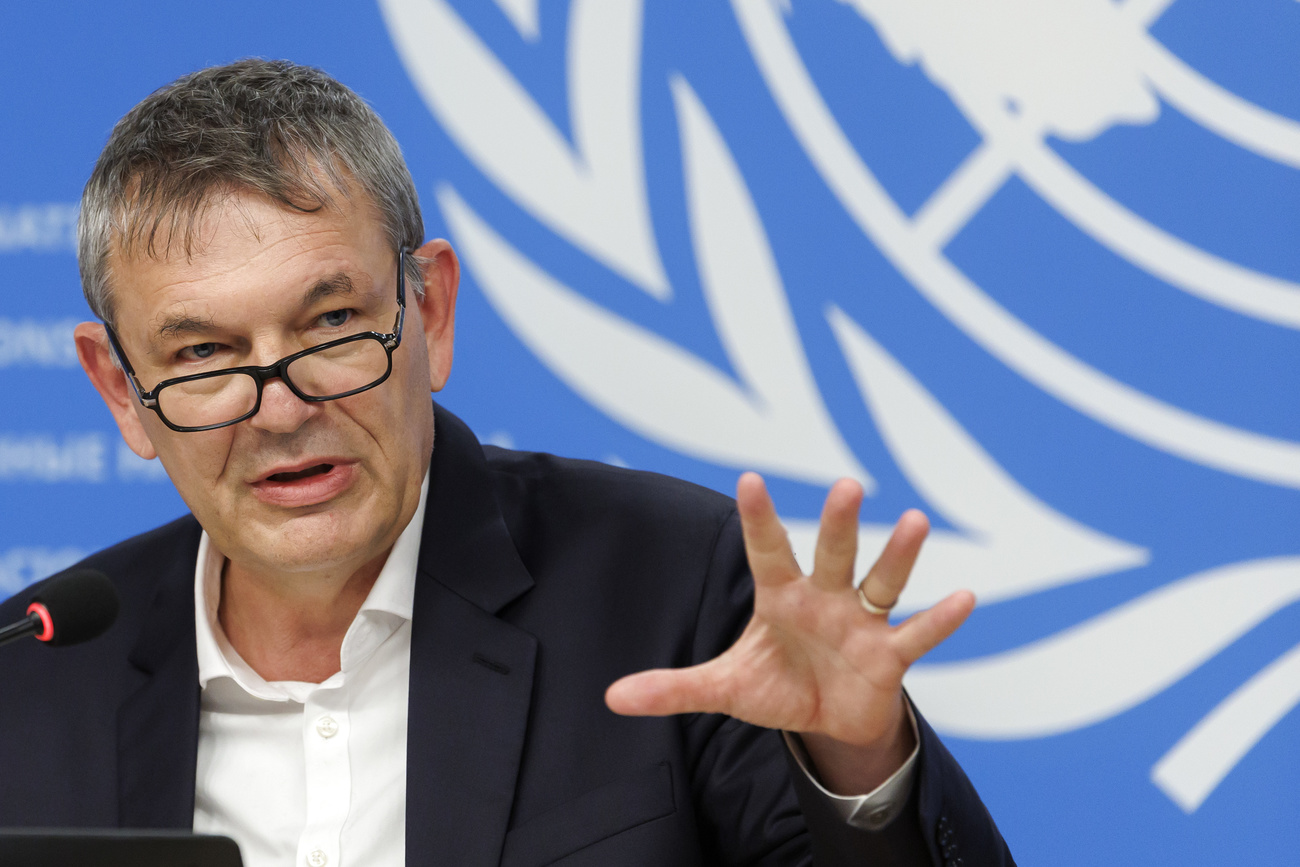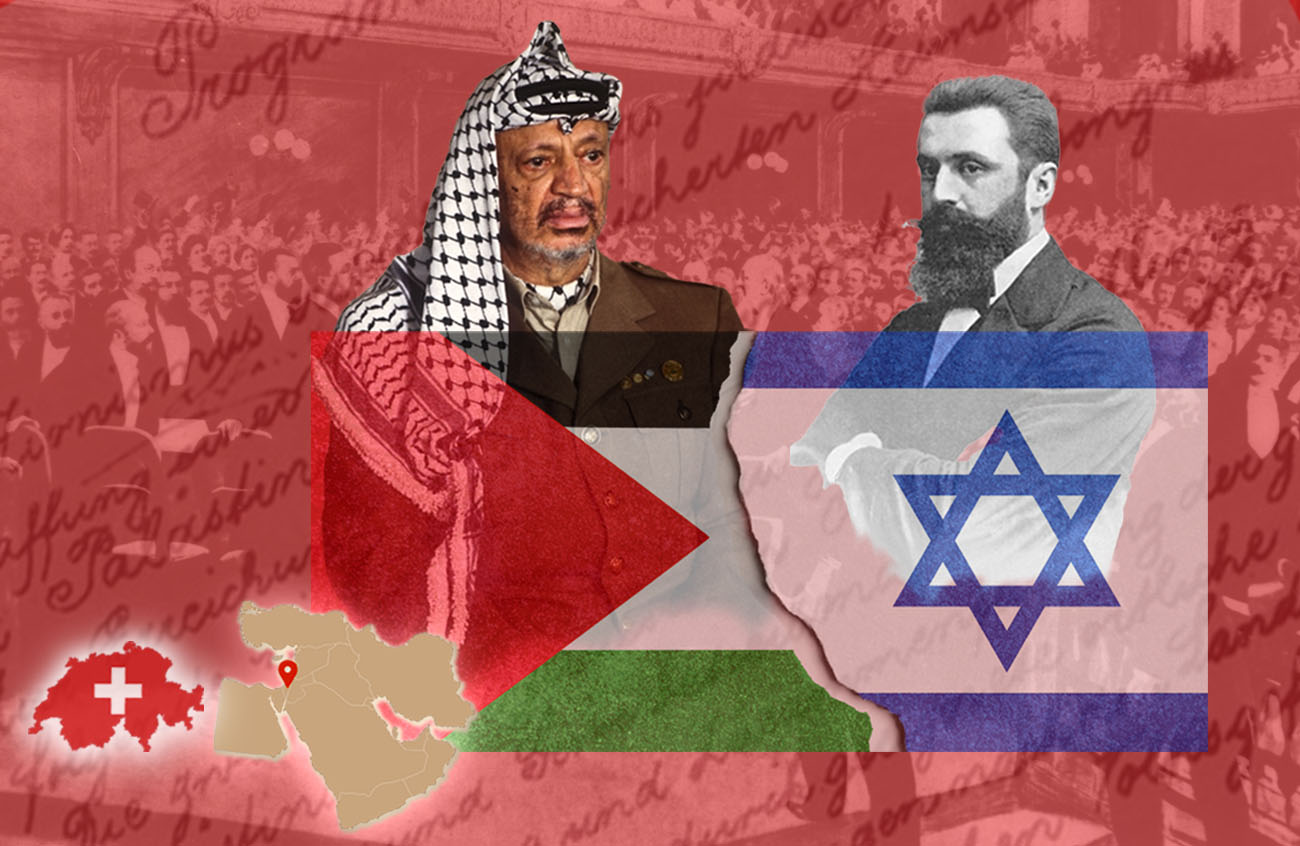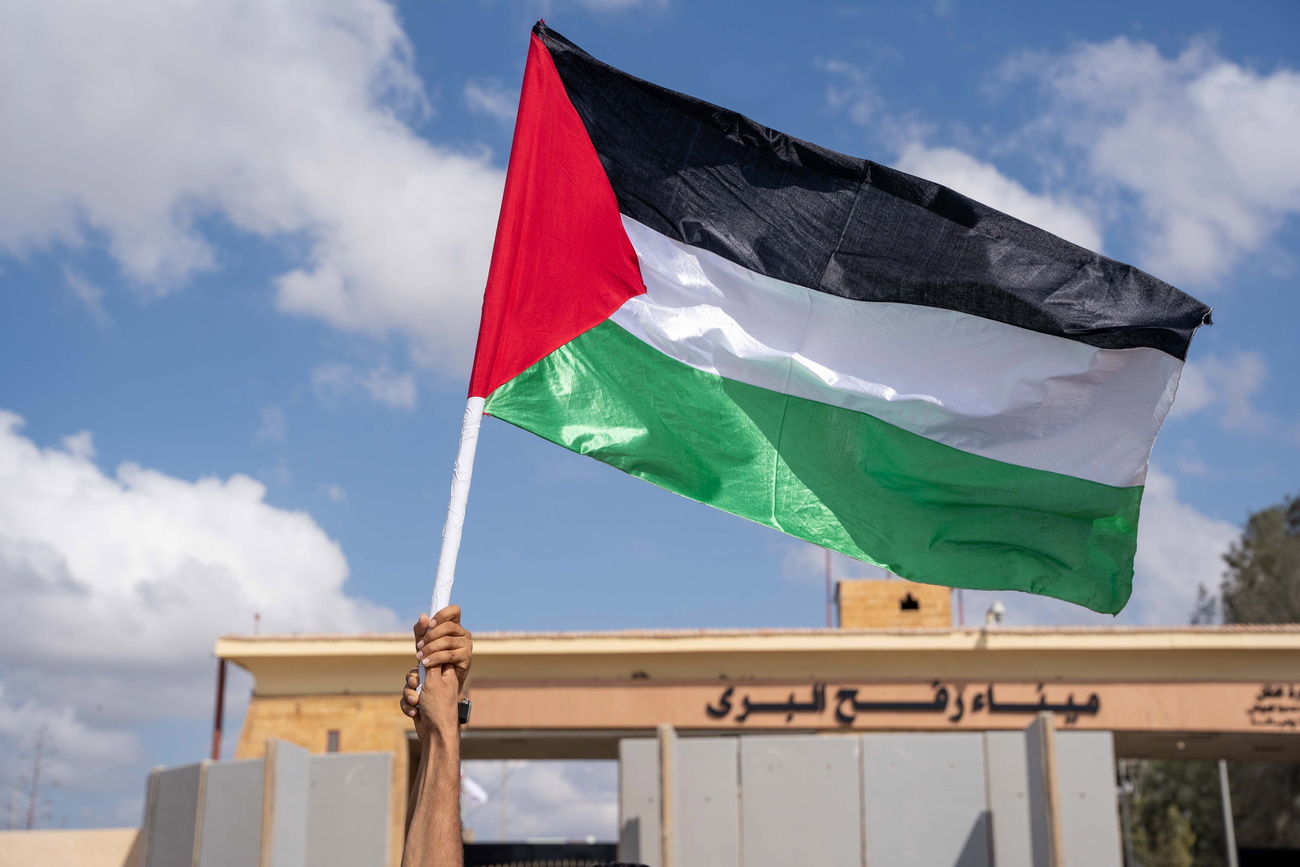
To cut or not? Swiss parliament divided on UNRWA aid

The two houses of parliament in Bern have different opinions about the country’s funding of the embattled UN body for Palestinian refugees. Debates will continue next week.
As parliamentarians discuss next year’s CHF90 billion ($104 billion) federal budget, a funding envelope of CHF20 million is having an outsized political impact.
The amount marks Switzerland’s annual contribution to the UN Relief and Works Agency for Palestine Refugees in the Near East (UNRWA), the body which runs schools, hospitals, and – especially over the past months – emergency shelters in Gaza and other parts of the Near East.
On Monday the House of Representatives voted to cut the funding, following a proposal by a politician from the right-wing Swiss People’s Party. In his proposal, David Zuberbühler cited NGO reports of anti-Semitism and the glorification of violence in UNRWA schools; he also said members of the Swiss-Israel parliamentary friendship group which visited Bethlehem in January were denied a look into classrooms and schoolbooks.
“The visit on site rather allowed the delegation to confirm that UNRWA has lapsed into an anti-Israeli narrative, and through its works the Palestinian people are simply reinforced in their feelings of victimhood,” Zuberbühler wroteExternal link in his parliamentary proposal.
While a strong centre-right majority in the House of Representatives agreed with him, senators in the other parliamentary chamber were less sure. On Thursday they narrowly voted to reject the cut, arguing that more time was needed to assess its possible impact. One senator also praised UNRWA’s “very important work in a very difficult context”, while Finance Minister Karin Keller-Sutter warned of the “reputational risk” for Switzerland of a cut in funding.

More
Philippe Lazzarini: ‘fuel is now synonymous with life’
UN reaction
The debate will go back to the House of Representatives for further debate on Monday. But it has already sparked reaction. At a demonstration for peace on Thursday evening in Geneva, former Swiss president Ruth Dreifuss said politicians in Bern should be aware that such a cut could have “dramatic” results for civilians in the Middle East. She had earlier said it would be “stupid and cruel” to cut funding at a time of such need in Gaza.
Meanwhile, after reacting with dismay to the decision earlier in the week, UNRWA boss Philippe Lazzarini welcomed the Senate vote. “It’s important that Switzerland continues to tell the Palestinians and the region that it remains committed to its humanitarian tradition,” he said at a UN refugee forum in Geneva.
Earlier on Thursday Lazzarini also directly rejected the allegations of anti-Semitic materials in UNRWA schools.
“Our curriculum has been evaluated by credible institutions like the British Council, UNESCO, or the German Georg-Eckert-Institut. All of them praised our education programme,” he told the Tages-AnzeigerExternal link newspaper. “It’s very disappointing that the [Swiss] parliament is now relying on disinformation from campaign NGOs [the Israeli “IMPACT-Se” and the Geneva-based “UN Watch” cited by Zuberbühler].”
Lazzarini said that while he can’t account for the actions of each of the 30,000 UNRWA staff members in the region, he can rule out that anti-Semitic material is found in the agency’s schools.

More
Timeline: Switzerland and the conflict in the Middle East
Criticism
The Swiss government seems to see things similarly, for now. Last December, renewing its CHF20 million contribution, the Federal Council said UNRWA plays “a key role as a stabilising factor in the region”, and provides quality healthcare to millions of refugees each year.
It also specifically highlighted the 710 UNRWA-run schools in the region, serving some 540,000 children – they create opportunities and help to “reduce the risk of radicalisation”, the government wroteExternal link.
In the past, however, it also hasn’t shied away from criticism of the UN organisation. In 2018 Foreign Minister Ignazio Cassis remarked that UNRWA hindered rather than helped peace in the region; by supporting it, “we keep the conflict alive – it’s a perverse logic”, Cassis said at the time. He called for the integration of long-term Palestinian refugees in their countries of residence – rather than prolonging the hope of them returning home after so many decades.
And after the US froze funding to the agency in 2018, Switzerland temporarily did the same, in light of misconduct allegations which saw former UNRWA head Pierre Krähenbühl step down in 2019.

More
Why Switzerland has frozen funding to 11 Middle East NGOs
New context
Since the Hamas attacks on October 7 and the subsequent Israeli-Palestinian war, UNRWA has found itself not only dealing with a humanitarian catastrophe in Gaza but also a situation in which donors are reviewing their aid to the region.
The Swiss foreign ministry, which said the October 7 attacks created a “drastic change in context”, did not call UNRWA into question. But it did evaluateExternal link funding for 11 Palestinian and Israeli NGOs suspected of being politically biased, before clearing eight of them and stopping cooperation with three.
It has also set up a taskforce to conduct, among other things, “a new detailed analysis of the financial flows linked to the cooperation programme in the Middle East”.
The European Union, after initial confusion which suggested it was going to suspend all of its development aid for Palestine, also carried out a reviewExternal link, which found no evidence of irregularities – including by UNRWA, for which the EU is the third-biggest donor.
And the United States, by far UNRWA’s biggest donor, is also facing political fights about aid, the Washington Post reportedExternal link last month. The paper wrote that some Republicans are calling to cut funding due to the agency’s alleged links to Hamas, as well as the competing geopolitical and humanitarian priorities in Ukraine.
As for Switzerland’s CHF20 million – which pales in comparison to the US ($344 million), German ($204 million), and EU ($114 million) contributions – RTS television reportedExternal link on Thursday evening that Foreign Minister Ignazio Cassis spoke to a committee in the House of Representatives earlier that day, to try and convince them not to push ahead with the cut. The plenary debate on the issue is scheduled for next Monday.
Edited by Virginie Mangin/mliv

In compliance with the JTI standards
More: SWI swissinfo.ch certified by the Journalism Trust Initiative




























You can find an overview of ongoing debates with our journalists here . Please join us!
If you want to start a conversation about a topic raised in this article or want to report factual errors, email us at english@swissinfo.ch.